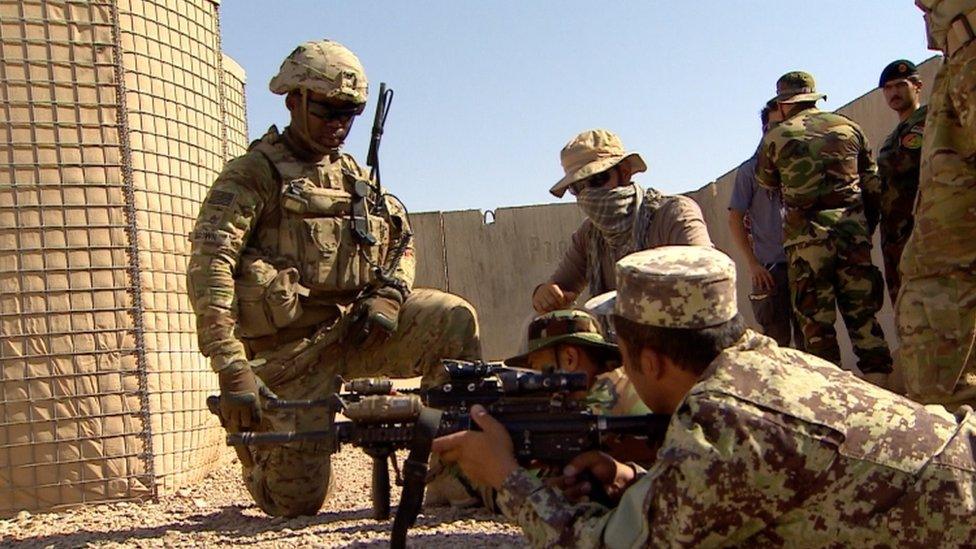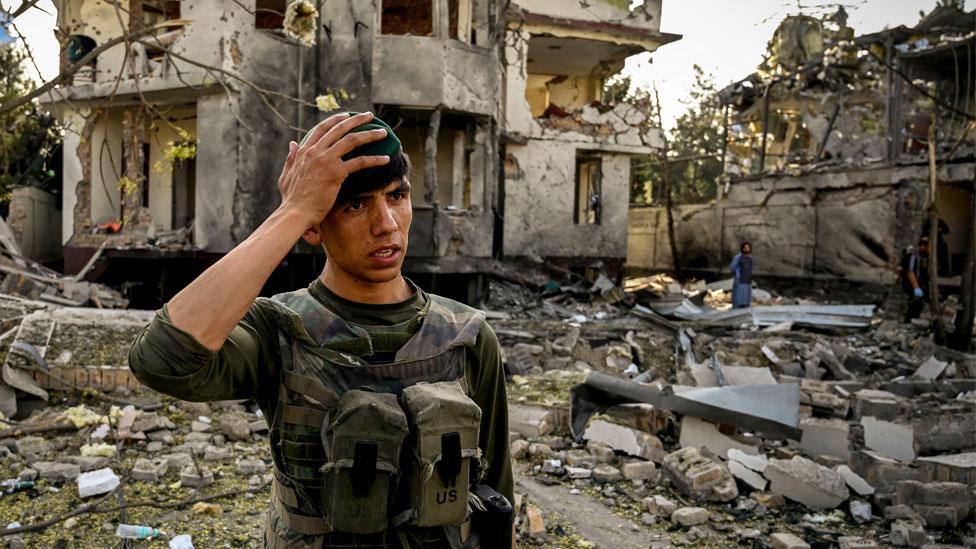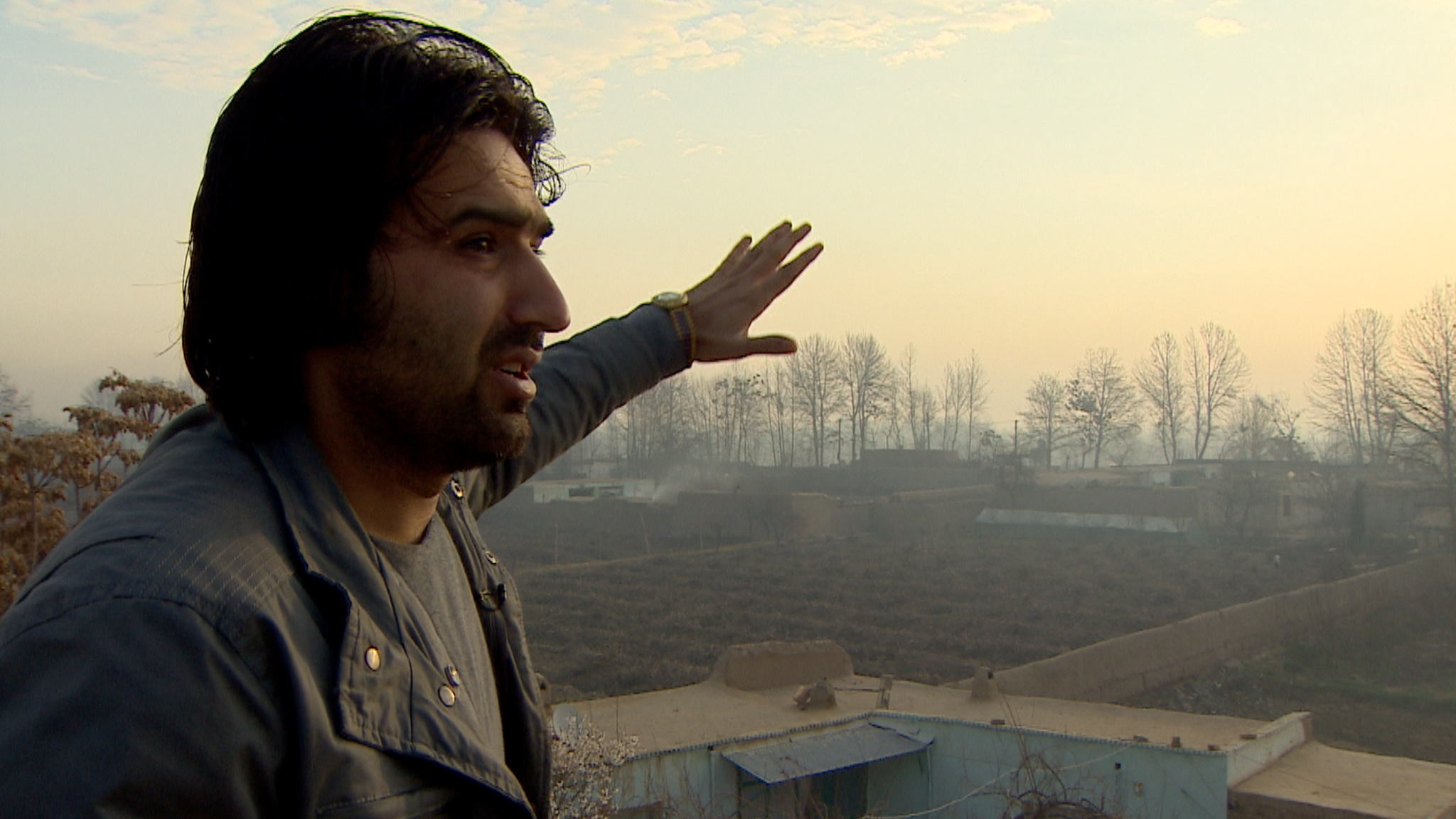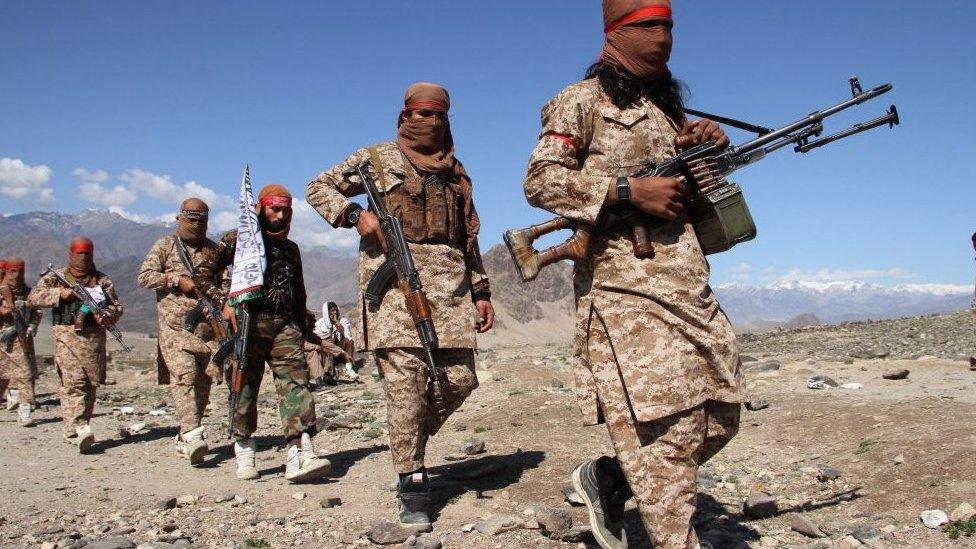Afghanistan war: Russia denies paying militants to kill US troops
- Published

Some 13,000 US troops are still stationed in Afghanistan, 18 years after the US intervention to oust the Taliban
Russia has denied reports that it offered Taliban-linked militants bounties to kill US troops in Afghanistan.
Citing US officials, The New York Times, Washington Post and Wall Street Journal reported that a Russian military intelligence unit offered the alleged bounties last year.
The same unit has been linked to assassination attempts in Europe
The Russian embassy in the US said the claims had led to threats to diplomats.
The Taliban also denied doing any deal with Russian intelligence.
The reports come as the US attempts to negotiate a peace deal to end the 19-year war in Afghanistan.
The unnamed officials cited by the New York Times, external said US intelligence agencies had concluded months ago that a unit of Russia's GRU military intelligence agency had sought to destabilise its adversaries by covertly offering bounties for successful attacks on coalition forces.
Allow X content?
This article contains content provided by X. We ask for your permission before anything is loaded, as they may be using cookies and other technologies. You may want to read X’s cookie policy, external and privacy policy, external before accepting. To view this content choose ‘accept and continue’.
Islamist militants, or armed criminal elements closely associated with them, were believed to have collected some money, the newspaper said.
According to the Times, President Donald Trump was briefed on the reports in March. Mr Trump denied having been briefed, writing on Twitter on Sunday that neither he nor the vice president had been told "about the so-called attacks on our troops in Afghanistan by Russians".
In a series of Twitter posts, the Russian embassy in the US accused the paper of promoting fake news.
Allow X content?
This article contains content provided by X. We ask for your permission before anything is loaded, as they may be using cookies and other technologies. You may want to read X’s cookie policy, external and privacy policy, external before accepting. To view this content choose ‘accept and continue’.

Twenty American troops died in Afghanistan in 2019, but the New York Times said it was not clear which deaths were under suspicion.
The officials quoted by the New York Times said the White House's National Security Council had considered how to respond, including imposing an escalating raft of sanctions against Russia.
The GRU unit allegedly involved has also been linked to the attempted murder of former Russian double agent Sergei Skripal and his daughter Yulia with a nerve agent in Salisbury, England, in March 2018.
Is peace with the Taliban possible?
A spokesman for the Taliban also called the accusations baseless.
"Our target killings and assassinations were ongoing in years before, and we did it on our own resources," Zabihullah Mujahid told the New York Times.
He added that the Taliban had stopped attacking US and Nato forces after they agreed in February to a phased troop withdrawal and to lift sanctions. In return, the Taliban said they would not allow extremist groups to operate in areas they control.
- Published30 August 2021

- Published28 February 2020

- Published12 August 2022
